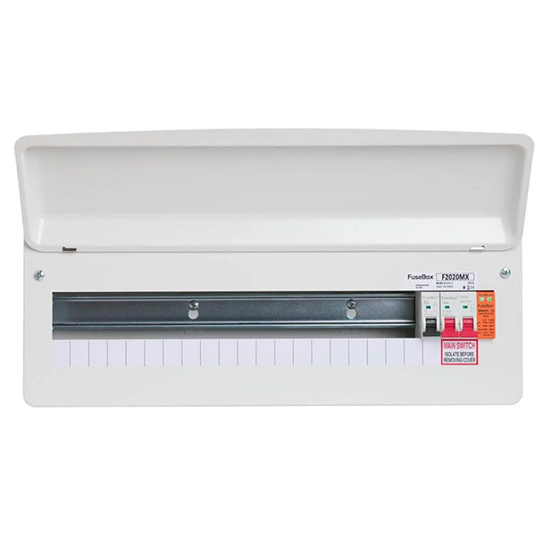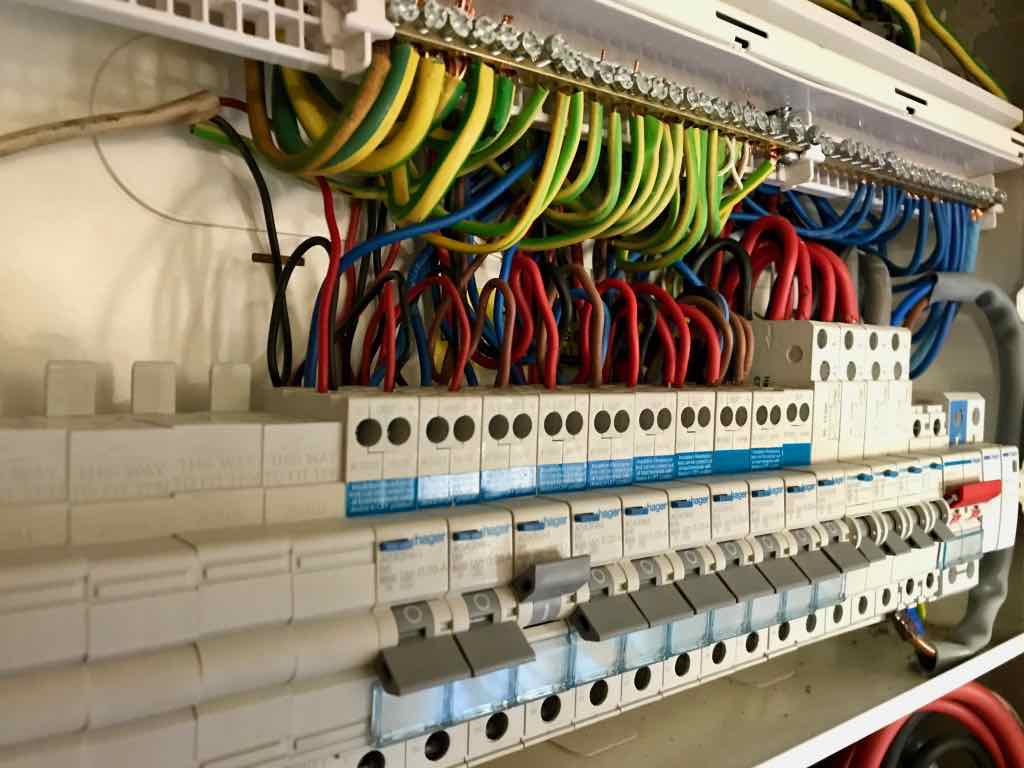How RCBO CONSUMER UNITS Improve Electrical Safety in Residential Spaces
The Duty of Customer Systems in Reliable Energy Management Equipment
Consumer systems are important to reliable power management systems, serving as the key circulation factors for electrical power within structures. The development of clever technologies has additionally enhanced their functionality, allowing for real-time information surveillance and nuanced power usage evaluation.
Comprehending Customer Units

Comprehending the duty of customer devices starts with identifying their essential function in securing electric systems. By isolating faults within specific circuits, customer systems stop prevalent interruptions and possible fire risks. This isolation is accomplished through the use of circuit breakers that trip or integrates that blow when a mistake is identified, thereby removing the electrical circulation to the affected circuit.
Furthermore, customer units promote the well organized circulation of power, improving the effectiveness of power use. They enable for the systematic management of electrical tons, which can be particularly vital in commercial and business setups where demand can fluctuate dramatically. Effectively kept customer systems add to the longevity of electrical systems and aid in decreasing downtime brought on by electric failures, inevitably supporting the seamless operation of energy-dependent centers.
Smart Technologies Combination

A vital benefit of wise consumer systems is their capacity to leverage progressed algorithms and artificial intelligence for predictive analytics. This permits preemptive changes based upon use patterns, weather report, and other variables, dramatically enhancing total performance. Additionally, clever customer devices assist in need reaction programs, where energy use can be dynamically readjusted throughout optimal periods to support the grid and lower expenses.
The integration of renewable resource sources, such as solar and wind, is additionally structured with smart consumer devices. By intelligently managing the intermittency of these sources, these devices make certain a dependable and balanced energy supply. In addition, smart consumer devices enhance customer interaction by providing detailed understandings and push-button control capabilities through mobile applications, promoting a more aggressive approach to energy preservation and sustainability.
Tracking Energy Usage
Building on the abilities of smart innovations assimilation, monitoring power intake comes to be an essential emphasis within energy management systems. Efficient monitoring serves as the foundation for identifying power inadequacies and applying click for source rehabilitative steps. By leveraging innovative metering infrastructure (AMI), real-time data on power usage can be accumulated at granular levels, giving valuable insights right into intake patterns and peak need durations. This data-centric strategy makes it possible for both consumers and power managers to make my company informed choices targeted at minimizing waste and enhancing general effectiveness.
Smart meters and Net of Points (IoT) tools play an essential duty in this tracking process. These devices can track energy use in real-time, sending data to centralized systems for analysis.
The integration of these technologies not only empowers consumers with thorough information concerning their power usage yet likewise sustains energy suppliers in managing load distribution more efficiently. Eventually, exact and constant surveillance is vital for accomplishing energy effectiveness, expense savings, and sustainability objectives within energy monitoring systems.
Optimizing Device Usage

One reliable method involves recognizing top and off-peak hours to change energy-intensive activities, such as laundry or dishwashing, to times when energy demand is reduced. This not just minimizes stress on the grid yet additionally profits from reduced energy tariffs. In addition, incorporating device knowing algorithms permits anticipating upkeep, making certain appliances operate at optimal efficiency and prolonging their life expectancy.
Power administration systems can likewise incorporate user-specific preferences and behaviors to customize home appliance use timetables. Smart illumination systems can adjust illumination based on tenancy and natural light schedule, while A/c systems can maintain comfort degrees without extreme power usage.
Encouraging Sustainability
Promoting sustainability within power management systems entails not just improving efficiency yet also fostering environmentally responsible methods. Consumer devices are important to this process, as they supply real-time data and control systems that make it possible for individuals to click now monitor and minimize their power intake. By leveraging innovative modern technologies, customer units can determine energy-saving possibilities and facilitate the combination of renewable energy sources like solar and wind power.
One critical element of advertising sustainability is enlightening customers on the advantages of responsible energy use. With comprehensive understandings provided by consumer units, users can make enlightened choices that minimize their carbon footprint. For example, these devices can suggest ideal times for running high-energy devices based upon grid need and eco-friendly power schedule, therefore minimizing dependence on nonrenewable fuel sources.
Furthermore, consumer units support the fostering of wise grid innovations, which improve the general efficiency and reliability of energy circulation. By enabling two-way interaction between customers and energy suppliers, these systems can dynamically readjust to power needs, reducing waste and promoting making use of lasting energy practices.
Verdict
Consumer devices, as indispensable elements of energy management systems, considerably enhance electric safety and performance within structures via circuit defense and wise modern technology integration. Real-time information tracking and analysis helped with by these systems optimize power consumption and appliance usage. Additionally, the unification of eco-friendly energy sources promotes sustainable practices, adding to lowered total power intake and lower carbon footprints. Consumer systems play a vital duty in advancing both power effectiveness and environmental sustainability.
Breakthroughs in wise innovations have changed the capacities of energy monitoring systems, particularly with the assimilation of clever consumer units.Building on the abilities of smart technologies assimilation, checking power intake comes to be a vital emphasis within power monitoring systems.Efficient appliance usage optimization is a crucial part of power monitoring systems, aiming to enhance efficiency and decrease unneeded energy consumption.Customer units, as essential components of energy administration systems, significantly improve electric safety and efficiency within structures with circuit protection and clever technology integration. Additionally, the unification of eco-friendly power sources promotes sustainable practices, contributing to reduced overall energy intake and lower carbon footprints.